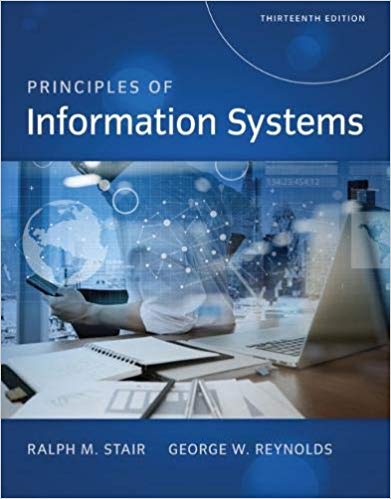Why should Kerry Group standardize on one ERP package? Wouldnt it be simpler and less expensive to
Question:
- Why should Kerry Group standardize on one ERP package? Wouldn’t it be simpler and less expensive to let each plant and sales operation choose its own software, as long as it can report its financial results to headquarters in a standard form?
- What are the advantages and disadvantages to using a third-party vendor like Olas to deploy a new ERP system? What steps can companies take to overcome the disadvantages of relying on third-party vendors when deploying enterprise-wide systems?
Kerry Group Is on Your Table
In business, sourcing is the set of activities involved in finding, evaluating, and then engaging suppliers of goods or services. Before a business can start to manage its supply chain, as described in this chapter, it must complete a sourcing process. Ireland’s Kerry Group, a supplier of food ingredients and flavors to the worldwide food industry and of consumer food products to the British Isles, requires a wide range of raw materials from many suppliers. With annual revenue of €5.8 billion (about U.S. $10 billion) in 2013, it needs a lot of those materials. With plants in 24 countries and 40 percent of revenue from outside Europe, it is impossible for the people in one plant to know about all possible suppliers worldwide, but making local sourcing decisions would reduce economies of scale. With the thin profit margins of the food industry, good sourcing decisions are vital to Kerry Group’s profitability. Software to manage the sourcing process is one way to help make those decisions. Kerry Group was already a SAP customer when it chose SAP Sourcing OnDemand, having used SAP ERP systems since 2009. The advantage of obtaining a new system from its existing ERP supplier is assured compatibility with applications the company already uses. “What we needed was an intuitive sourcing system that would be completely integrated with our SAP back-office for an end-to-end procurement process,” said Peter Fotios, Kerry Group’s director of e-procurement services. SAP Sourcing OnDemand uses the cloud computing concept. As its OnDemand name suggests, customers do not have to dedicate computing resources to the software. They use SAP resources on demand as their needs require, paying on a per-user, per-month subscription basis. Meanwhile, SAP is responsible for administrative tasks such as data backup and, if necessary, restoration. Kerry Group implemented SAP Sourcing OnDemand by beginning with a pilot plant. “We rolled it out smoothly in Ireland first, then England and then throughout our global operations in 23 countries,” explains Fotios. If any problems appeared in Ireland, the pilot site, Kerry Group could have focused all its problem-solving resources on that location. Fortunately, no major issues arose. Another thing that Kerry Group did right at implementation time was training. Recognizing that it had competent in-house trainers and competent technical professionals, but few if any who were both, the firm engaged SAP’s Irish training partner Olas to assist with that end of the project. Olas brought SAP expertise to the training team, completing the required set of capabilities. Moving forward, Kerry Group has project plans extending into 2016 for the full roll-out of all its planned SAP ERP capabilities. The smoothness of its Sourcing OnDemand implementation, which took a total of four weeks elapsed time because the software was already running in the cloud when they began, is a good indication that the rest of the project (which is in many ways more complex) will probably go well. If Kerry Group is to carry out its mission statement, which includes being “the world leader in food ingredients and flavors serving the food and beverage industry,” the rollout will have to be smooth.
Step by Step Answer:

Principles of Information Systems
ISBN: 978-1305971776
13th edition
Authors: Ralph Stair, George Reynolds





